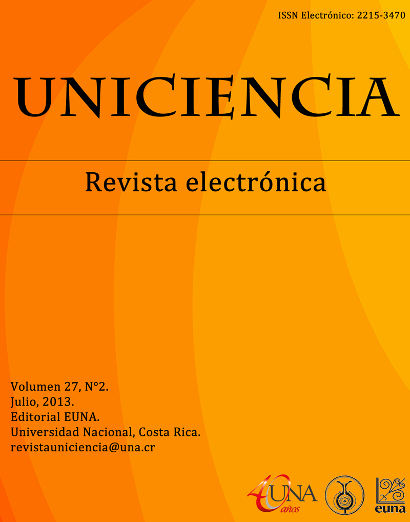A pedagogical model to develop mathematical power on gifted students in Costa Rica
Keywords:
Gifted student, mathematics, mathematics education, pedagogical model, mathematics learningAbstract
The purpose of this article is to share an experience on the construction of a pedagogical model that allows high school gifted students to develop mathematical power. This model was designed with the intention to offer an alternative to mathematics teachers, so they can teach these students more efficiently. Most of the time, these students are left out in a mathematics classroom. The intention with this model was to generate a learning environment where all students could develop their intellectual potential, in mathematics. This research was conducted in a public high school, located in San José, Costa Rica. It was developed under a qualitative paradigm. The subjects were two students from eleventh grade selected using specific criteria. Other participants were the mathematics teacher and the whole group. In this report we propose a pedagogical model to assist talented students, in the micro-culture of a classroom. T will be documented with evidences coming from focal point students. Finally, there are some recommendations given to different actors from the community of mathematics educators.Downloads
Published
Issue
Section
License
Authors who publish with this journal agree to the following terms:
1. Authors guarantee the journal the right to be the first publication of the work as licensed under a Creative Commons Attribution License that allows others to share the work with an acknowledgment of the work's authorship and initial publication in this journal.
2. Authors can set separate additional agreements for non-exclusive distribution of the version of the work published in the journal (eg, place it in an institutional repository or publish it in a book), with an acknowledgment of its initial publication in this journal.
3. The authors have declared to hold all permissions to use the resources they provided in the paper (images, tables, among others) and assume full responsibility for damages to third parties.
4. The opinions expressed in the paper are the exclusive responsibility of the authors and do not necessarily represent the opinion of the editors or the Universidad Nacional.
Uniciencia Journal and all its productions are under Creative Commons Atribución-NoComercial-SinDerivadas 4.0 Unported.
There is neither fee for access nor Article Processing Charge (APC)






